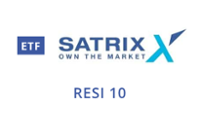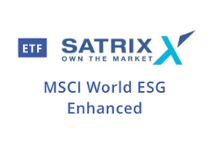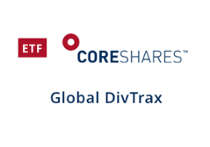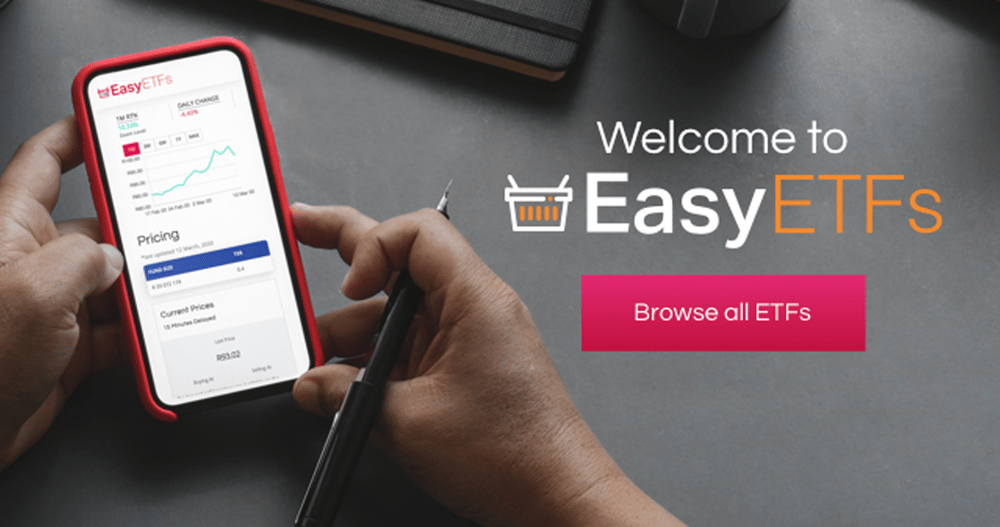Intellidex Favorite ETF Picks
Intellidex February ETF Picks
Each month the investment gurus at Intellidex scan the market to come up with a list of their favorite ETFs across different asset classes.
Intellidex classify all ETFs into six broad categories:
- Domestic equities
- International equities
- Bonds and cash
- Dividend or income-focused
- Multi-asset
- Commodities
Various empirical studies conclude that the bulk of equity returns stem from diversification among broad asset classes rather than from individual stock picking. As such, our grouping is done with a diversified portfolio in mind, ensuring appropriate exposure to different asset classes. First, we group the ETFs according to the three widely recognized asset classes – equities, bonds and cash. We further split equities into geographic groupings, then add a category for equity ETFs with an income theme.
Our picks should provide an investor with a relatively diversified portfolio made up only of ETFs. However, asset allocation is not a one-size-fits-all concept. You need to make sure that weights of different asset classes in your portfolio meet your unique risk-and-return objectives. Multi-asset ETFs, which are already diversified among asset classes, are analyzed as a separate category.
As a rule of thumb, we like ETFs that follow a watertight investment philosophy. They should also be tax smart, which means they should qualify to be in a tax-free savings account. To avoid overconcentration, a good ETF should cap its exposure to a single sector and/or a single counter. While competition among providers is intensifying and ETF costs are coming down, we look at this metric closely and prefer ETFs with low total expense ratios (TERs). An overview of our favorite funds for each category follows.
The Intellidex favorites:
Domestic equity:
Given the absence of more nuanced SA-focused ETFs, the NewFunds Value Equity ETF (+5.3% in February) comes the closest to being the play both for the reflation trade and, on the margin, the potential Operation Vulindlela success themes. The fund screens for the 30 most liquid companies on the JSE with the most attractive value attributes based on price-to-earnings and price-to-book ratios. Companies are then volatility-weighted to ensure equal risk contribution by all constituents.
We believe value stocks will continue to outperform growth stocks in the foreseeable future. With our broad-based funds overweight in Naspers/Prosus – and cognizant of the fact that investors are rotating out of tech – it is important to improve diversification. NewFunds Value Equity improves diversification while the value factor tends to outperform in the initial stages of a recovery.
The fund is heavily weighted in financials, consumer goods and basic materials. The Ashburton MidCap (+3.2%) and Satrix FINI (4.3%) ETFs may also be useful for more risk-tolerant investors looking to gain exposure to relatively cheap, SA-focused companies.
To take advantage of the commodities boom as the global economy recovers, the Satrix RESI ETF (+12.0%) provides exposure to the biggest miners listed on the JSE. It is, however, important to note that most miners have had a good run since 2015, when commodity prices bottomed out, and valuations are beginning to look full. But the global recovery is likely to support strong commodity prices for a while longer.
Developed markets equity:
We believe Britain will benefit from the ongoing reflation trade and investors can gain exposure through the Sygnia Itrix FTSE 100 ETF (+3.6%). Arguably a value play, it has uniquely limited exposure to tech, which is falling out of favor with investors, but it has sizeable exposure to consumer staples, financials and resources. The ETF provides exposure to the likes of Unilever, HSBC, Rio Tinto and BP.
Britain has been out of favor with investors since the Brexit vote and the subsequent drawn-out Brexit deal. With the Brexit deal now somewhat resolved and the UK leading most of its global peers with 32% of Britons vaccinated, it is likely to capitalize on early herd immunity.
Emerging Markets:
The Satrix MSCI EM ESG Enhanced ETF (-0.7%) provides exposure to companies that are favorably ranked with respect to environmental, societal and governance factors in emerging markets. The trade takes advantage of the strong demand for ESG investments globally and the reallocation of portfolios into risky assets on the back of ultra low interest rates. In addition, emerging markets as a distinct asset class provide the global investor with exposure to some of the world’s fastest-growing economies in the synchronized recovery.
Click logos to view ETFs
Dividend & Income-themed funds:
For investors who rely on investment income to fund day-to-day expenses, an allocation of a portion of their portfolio to ETFs that pay high dividends may be useful. We maintain our choice of dividend-focused strategies: CoreShares S&P Global Dividend Aristocrats ETF (+0.1%) and the CoreShares South Africa Dividend Aristocrats ETF (+2.4%).
A key advantage of the dividend aristocrat strategy is that it selects constituents based on growth in the absolute size of dividends rather than the dividend yield. This is particularly important now when financially challenged companies may exhibit deceptively high yields because of low share prices, such as property funds. The strategy also tends to select companies that can endure difficult market and economic environments and whose earnings are not cyclical. This makes the fund overweight in highly cash-generative and resilient sectors. The main drawback is that these funds are pricey – but there are no direct peers.
Bonds and Cash funds:
Bonds improve risk-adjusted returns of the overall portfolio as they are uncorrelated with equities and this improves portfolio diversification. Also, SA bond yields remain higher than global bond yields, which could drive global investment into our local bonds if a “risk-on” environment persists. We also think that bonds can benefit if the SA government implements expenditure cuts and reforms needed to address structural weaknesses in the economy.
Consequently, investors can gain exposure to local bonds through the Satrix SA Bonds ETF (+0.1%), the cheapest in its class. This fund pays a quarterly dividend which can provide relief to an investor in the current environment of declining disposable income.
For short-term investors, usually less than a year, the NewFunds TRACI (+0.2%) is the appropriate investment vehicle.
Click logos to view ETFs
Diversified funds:
If you find the process of diversifying your portfolio daunting, two ETFs will do it for you. They combine equities and bonds to produce a diversified portfolio for two investor archetypes with differing risk appetites:
NewFunds Mapps Protect ETF (+3.4%) is more conservative, usually suitable for older savers.
NewFunds Mapps Growth ETF (+3.9%) suits investors with a longer-term horizon. Notably, both funds invest in SA-listed assets, thus lacking an offshore allocation.
Commodity funds:
Adding a commodity ETF to your portfolio improves diversification because commodities march to the beat of their own drum – they are not in sync with broader markets. Rhodium has been our metal of choice and has boosted our portfolio performance.
In addition, the structural drivers of rhodium remain strong through demand for greener and cleaner technology in the automotive industry. However, rhodium remains in short supply due to capacity constraints in SA, where 85% of global rhodium is sourced and mines face operational difficulties from a lack of investment, policy uncertainty and unstable electricity supply. As a result, we think that the rhodium price will enjoy continued support until supply increases.
The 1nvest Rhodium ETF (+34.6%) is our preferred vehicle for investors seeking exposure to rhodium as it presents the strongest fundamentals out of all the PGMs. This ETF is backed by physical rhodium. The drawback is that the EFT is quite pricey, with a TER of 0.75%.
Important note: This ETF does not qualify for a tax-free savings account.
Final thoughts
We believe investors should remain invested in well-diversified portfolios over meaningful time horizons for returns to accumulate ahead of volatility. In addition, we still prefer a healthy portion of investment in global assets due to weak conditions locally. We think offshore assets need to be added tactically when the rand strengthens given that, historically, the bulk of the returns have been due to the weakening of the rand.
New to investing
and want to learn more about other Intellidex ETF picks?
Read: Intellidex ETF Picks and Reviews
Background: Exchange-traded funds (ETFs)
Exchange-traded funds (ETFs) are passively managed investment funds that track the performance of a basket of pre-determined assets. They are traded the same way as shares and the main difference is that whereas one share gives exposure to one company, an ETF gives exposure to numerous companies in a single transaction. ETFs can be traded through your broker in the same way as shares, say, on the EasyEquities platform. In addition, they qualify for the tax-free savings account, where both capital and income gains accumulate tax free.
Benefits of ETFs
- Gain instant exposure to various underlying shares or bonds in one transaction
- They diversify risk because a single ETF holds various shares
- They are cost-effective
- They are liquid – it is usually easy to find a buyer or seller and they trade just like shares
- High transparency through daily published index constituents
Disclaimer
This research report was issued by Intellidex (Pty) Ltd. Intellidex aims to deliver impartial and objective assessments of securities, companies or other subjects. This document is issued for information purposes only and is not an offer to purchase or sell investments or related financial instruments. Individuals should undertake their own analysis and/or seek professional advice based on their specific needs before purchasing or selling investments. The information contained in this report is based on sources that Intellidex believes to be reliable, but Intellidex makes no representations or warranties regarding the completeness, accuracy or reliability of any information, facts, estimates, forecasts or opinions contained in this document. The information, opinions, estimates, assumptions, target prices and forecasts could change at any time without prior notice. Intellidex is under no obligation to inform any recipient of this document of any such changes. Intellidex, its directors, officers, staff, agents or associates shall have no liability for any loss or damage of any nature arising from the use of this document.
Remuneration
The opinions or recommendations contained in this report represent the true views of the analyst(s) responsible for preparing the report. The analyst’s remuneration is not affected by the opinions or recommendations contained in this report, although his/her remuneration may be affected by the overall quality of their research, feedback from clients and the financial performance of Intellidex (Pty) Ltd.
Intellidex staff may hold positions in financial instruments or derivatives thereof which are discussed in this document. Trades by staff are subject to Intellidex’s code of conduct which can be obtained by emailing mail@intellidex.coza.
Intellidex may also have, or be seeking to have, a consulting or other professional relationship with the companies mentioned in this report.
Subscribe To Our Research Portal
Search all research
Let Us Help You, Help Yourself
From how-to’s to whos-whos you’ll find a bunch of interesting and helpful stuff in our collection of videos. Our knowledge base is jam packed with answers to all the questions you can think of.












